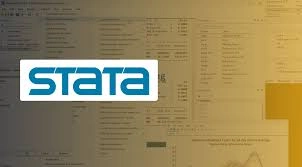Course Overview
Monitoring & Evaluation using STATA Course is designed to provide participants with the skills and knowledge required to effectively conduct monitoring and evaluation (M&E) activities using STATA, a powerful statistical software. This course covers the entire M&E process, from designing frameworks to data analysis and reporting. Participants will learn how to apply statistical techniques and tools in STATA to evaluate project outcomes, analyze data, and generate insights that inform decision-making.
Course Duration
10 Days
Who Should Attend
- M&E professionals looking to enhance their data analysis skills using STATA
- Project managers involved in monitoring and evaluation activities
- Researchers and data analysts working in development projects
- Professionals in NGOs, government agencies, and international organizations responsible for M&E
- Graduate students and academics interested in M&E and data analysis
Course Objectives
By the end of this course, participants will be able to:
- Understand the principles and processes of monitoring and evaluation in development projects.
- Design M&E frameworks and plans using evidence-based approaches.
- Apply statistical techniques in STATA for data cleaning, management, and analysis.
- Conduct descriptive and inferential statistical analysis to evaluate project outcomes.
- Utilize STATA for advanced data visualization and reporting.
- Interpret and present M&E findings effectively to stakeholders.
- Apply STATA in real-world M&E case studies and scenarios.
- Enhance the quality of M&E reports through robust data analysis techniques.
- Develop skills in automating M&E processes using STATA.
- Strengthen decision-making processes through data-driven M&E insights.
Course Outline:
Module 1: Introduction to Monitoring and Evaluation
- M&E concepts, principles, and terminologies
- The M&E cycle
- Importance of M&E in program/project management
Module 2: Introduction to STATA
- Overview of STATA software
- Basic data management and manipulation
- Data exploration and visualization
Module 3: M&E Data Management with STATA
- Data import and export
- Data cleaning and validation
- Data coding and recoding
- Creating and managing datasets
Module 4: Descriptive Statistics with STATA
- Summary statistics (mean, median, mode, standard deviation)
- Frequency distributions and cross-tabulations
- Data visualization (histograms, box plots, scatter plots)
Module 5: Inferential Statistics with STATA
- Hypothesis testing (t-tests, chi-square tests)
- Correlation and regression analysis
- Sample size determination
Module 6: Program Evaluation with STATA
- Impact evaluation methods (experimental, quasi-experimental, non-experimental)
- Difference-in-differences estimation
- Propensity score matching
Module 7: Cost-Benefit Analysis with STATA
- Cost-benefit analysis concepts
- Data preparation for cost-benefit analysis
- Conducting cost-benefit analysis in STATA
Module 8: Monitoring and Evaluation Reporting
- Report writing and structure
- Data visualization for reporting
- Effective communication of M&E results
Module 9: Advanced Topics in STATA for M&E
- Panel data analysis
- Survival analysis
- Multilevel modeling
- Meta-analysis
Module 10: Case Studies and Practical Exercises
- Real-world M&E case studies
- Hands-on exercises using STATA
Customized Training
This training can be tailored to your institution needs and delivered at a location of your choice upon request.
Requirements
Participants need to be proficient in English.
Training Fee
The fee covers tuition, training materials, refreshments, lunch, and study visits. Participants are responsible for their own travel, visa, insurance, and personal expenses.
Certification
A certificate from Ideal Sense & Workplace Solutions is awarded upon successful completion.
Accommodation
Accommodation can be arranged upon request. Contact via email for reservations.
Payment
Payment should be made before the training starts, with proof of payment sent to outreach@idealsense.org.
For further inquiries, please contact us on details below:






